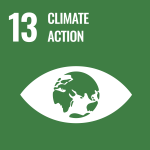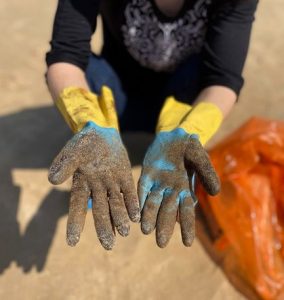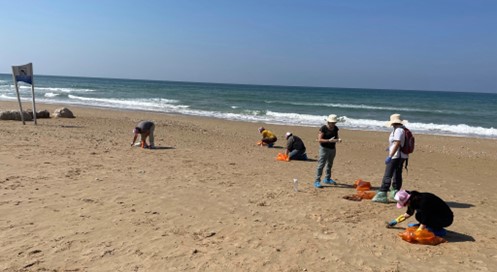 Goal 13: Climate Action
Goal 13: Climate Action
TAKE URGENT ACTION TO COMBAT CLIMATE CHANGE AND ITS IMPACTS
Research
Prof. Shlomit Paz from the Department of Geography and Environmental Studies is a climatologist who works on better understanding of the scientific basis of the climate crisis and its impacts on human health and security. She is a member of the Steering Committee of the MedECC, the network of Mediterranean Experts on Climate and Environmental Change,  which includes over 650 scientists from more than 30 countries. Prof. Paz is also a member of the CLIMOS consortium, which recently grant of 9.7 million € for research on the impacts of climate change on the human health in Europe.
which includes over 650 scientists from more than 30 countries. Prof. Paz is also a member of the CLIMOS consortium, which recently grant of 9.7 million € for research on the impacts of climate change on the human health in Europe.
Prof. Ofira Ayalon from the Department of Natural Resources and Environment Management is a member of a research group that promotes the prevention of food wastage in households, with the aim of reducing greenhouse gas emissions. Other research by Prof. Ayalon is focused on improving river basin management in order to reduce floods risks that result from climate change.
Dr. Maya Negev from the School of Public Health works on climate resilience issues in urban areas, developing models for a better preparedness to climate change impacts.
A current study by Dr. Galit Weinstein from the School of Public Health, together with Dr. Negev and Prof. Paz, analyzed the impacts of heat waves on the risk for stroke.
Public Engagement
Prof. Shlomit Paz, Prof. Ofira Ayalon and Dr. Maya Negev take part in various national committees that address Israel’s preparedness for the climate crisis. For example, “The National Preparedness Committee for Climate Change” and “The Israeli Climate Forum”, recently established by the President of Israel.
In addition, they serve as advisors to various government agencies (such as: The Ministry for Environmental Protection, Ministry of Health, Ministry of Welfare, Ministry of Energy among others) and local authorities (e.g. Tel-Aviv and Haifa municipalities, Emek Yizrael regional council and others) on preparedness to climate crisis impacts.
Dr. Alex Altshuler, from the Faculty of Social Welfare and Health Sciences, is a member of the International Science Council, the United Nations Disaster Risk Reduction Expert Review Group (ERG), which develops a global disaster risk reduction research agenda towards 2030 and beyond.

Learning & Students
The Department of Geography and Environmental Studies offers MA programs with a focus on GIS and remote sensing, emergency and disaster management, tourism planning and management, water resources, as well as a program for teachers of environmental geography. The Department hosts several specialized research and teaching facilities, including several teaching labs in physical geography and computer-aided mapping and analysis.
Declining bee populations have caused widespread alarm around the globe. Many beekeepers believe that the Varroa mite – a parasite that feeds on bees – is one of the main culprits. University law student and software developer Yaniv Finkelshtein has teamed up with Avi, his beekeeper brother, to launch “Save the Bees” – an innovative startup employing AI technology to fight the spread of the Varroa mite. The system employs advanced image processing technology housed within a sterilized box to assist beekeepers with identifying infected hives.
Operations
Several of our campus buildings were equipped with systems that reduce electricity and water consumption. The systems detect when there is deviation from normal usage and enable quick response. There is continual oversight over these systems. Our solar energy system is also continually monitored for maximum efficiency.
The university encourages employees to use the Waze carpool services. Our Port Campus location was chosen as it is accessible via public transportation. In addition, the new cable car has just opened, connecting the central bus station and the train station with the Technion and the University, thereby encouraging the use of public transportation, instead of private car use.

